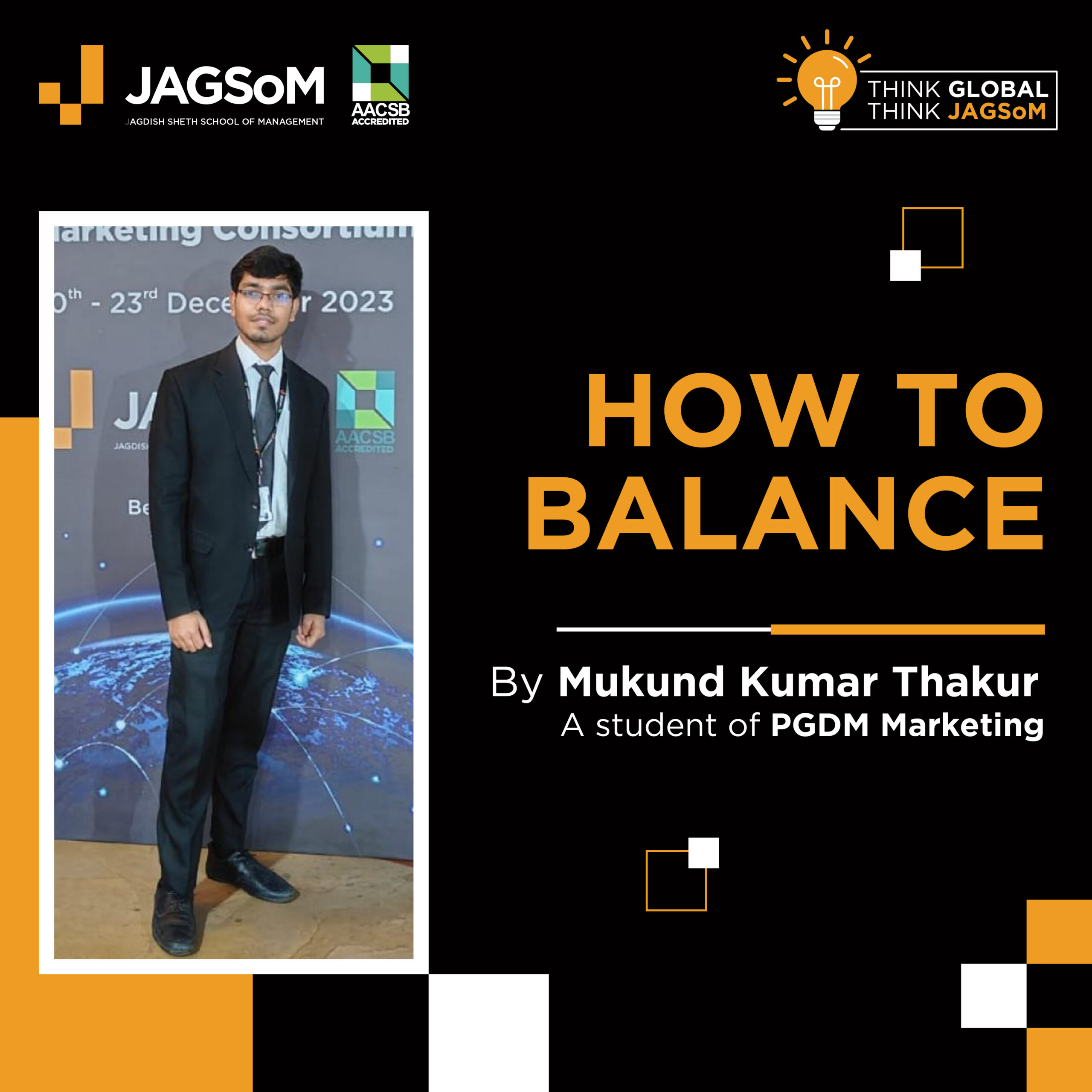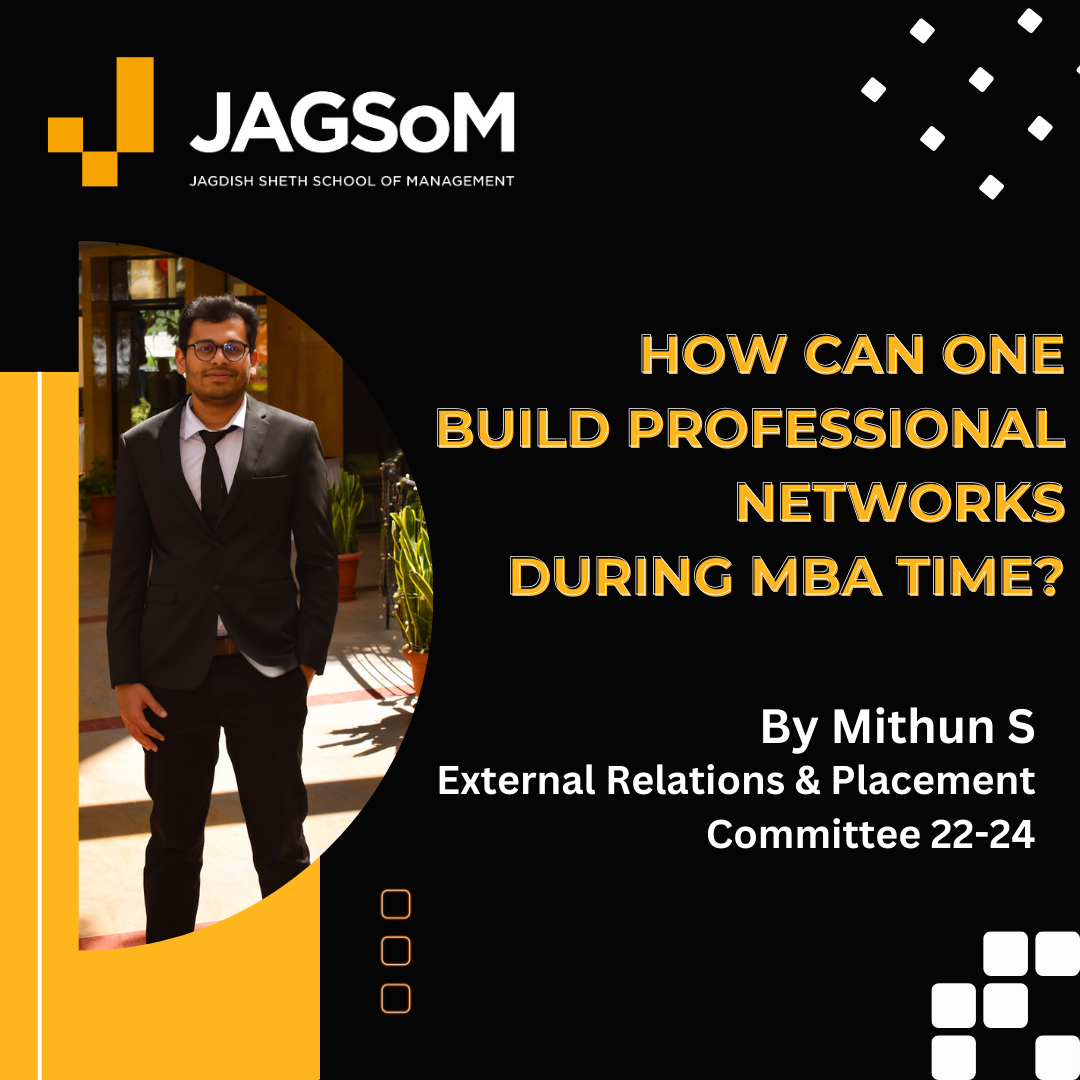By Ranjan Surianarayan(PGDM 2020-22).
Last year around the same time, we were grappling with our admission process dealing with the same questions. It therefore made a lot of sense to listen to this webinar featuring our Director, Dr Atish Chattopadhyay and Mr Debasish Ghosh, Country HR Head, Berkadia that took place on 17 Feb 2021. The topic was what does one do, if they don’t get a 99 percentile in CAT.
Sayantan Ghosh, our batchmate with a magical smile who moderated the discussion clearly understood the importance of the occasion – one does not easily get the chance to ask questions to one’s teachers least of all the Director! We provided him all the ‘hard’ questions to ask on behalf of the incoming batch and he clearly enjoyed his day. We somehow got the impression that Sayantan will himself be a professor someday.
Many institutions today use test scores as a basis for deciding whether a participant has the aptitude or ability to successfully complete the requirement of a given course within a specified duration. While test scores definitely say something about a participants aptitude ability, I feel they do not necessarily dictate whether a participant has the potential to be a leader of tomorrow who can drive innovation and change when organizations need them the most. The webinar conducted by Prof. Atish and Mr. Debashish Ghosh gave an intriguing insight into this matter.
There isn’t any formula for success according to Mr Debashish Ghosh. It is critical to look at individual traits that one possesses rather than the common traits that an individual has. It is important to go back to the fundamentals while building soft skills such as emotional intelligence, flexibility, adaptability, negotiations, communication skills and also cultural fit.
As a society, we believe that intelligence is mathematical intelligence however the intelligence of the two are very different. Professor Atish stressed the importance of diverse classrooms, with people bringing in different intelligence. This diversity of intelligence creates an environment where the learning curve can be steep for the participants. The intelligence of a participant need not be restricted to mathematical intelligence alone, for instance, a participant with a good sense of musical intelligence can instil in others the skills or craft behind the music and how those skills are relevant in business perhaps.
As students, one is exposed to parental pressure and the differences of interest between parents and children. Thus, it becomes important to understand what an individual is good at without the influence of any external factors. Any kind of learning must take place from an uncomfortable place and soft skills are one of the most important parameters of an MBA graduate.
Mr Debashish also gave his opinion on education policy by stating that an MBA will undergo some structural changes with the adoption of a model that focuses on lifelong learning and an emphasis on life skills. Mr Atish added that the focus of an institution is a multidisciplinary approach that has exposure to different bits of intelligence, accumulating credits, combining the management knowledge, competencies with some element of arts.
Addressing a query about the approach for MBA towards learning and upskilling, Mr Debashish recommended a book called ‘Range’ by David Epstein and suggested that aspirants must be open to new domains or subject areas and opportunities. Aspirants may desire to focus on a particular area but the work in that one area may become mundane and thus students need to build a broader set of skills and competencies that can result in a broader range of experiences.
In conclusion, I feel when B schools conduct written tests, group discussions, interviews, they should also test whether a candidate is a right fit for the culture of a particular B school. This could be achieved by considering whether the values of a participant match with that of the institute. While many B schools short list candidates based on their quantitative ability and work experience, they might also perhaps consider perhaps their creative abilities or innovative abilities.






